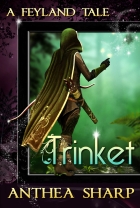
THE DUKE’S CHRISTMAS
CHAPTER ONE
The scent of ginger and molasses filled the low-ceilinged kitchen as Miss Philomena Clarke—Mena to her friends, who were regrettably few and far between, seeing as how their family estate was isolated in Yorkshire—carefully removed the pan of parkin cake from the oven.
Mrs. Stewart, their longtime family cook, looked on, arms crossed over her stout belly.
“It’s not right for gentry to be messing about in the kitchen, miss,” she said, as though they hadn’t had the same argument for years.
Though this would be the last. A pang went through Mena at the thought, and she quickly pushed the painful knowledge away. There would be time enough to give way to despair later. For now, there was gingerbread.
She inhaled deeply of the warmth as she set the pan on the iron trivet atop the wide kitchen table, then looked at Mrs. Stewart.
“I know,” Mena said, trying to smile. “And yet you indulge me.”
“I suppose someone ought,” Mrs. Stewart said with a sniff. “Whether you deserve it or not.”
Sudden tears blurred Mena’s vision and she blinked hard, hoping the cook would think the heat had gotten to her. The gruff old woman had always been kind, and the kitchen had always been Mena’s refuge from the coldness of the rest of the baronial manor.
Not that Marston Mews was a particularly grand home, as such things went. Nothing like Dovington Hall, the vast and glittering estate of the Duke of Beckford which lay on the far side of the village. In her memory, that estate was an enchanted castle, and the people who dwelt there lived happy and perfect lives.
But it had been a decade since her family had anything to do with the late Lord Beckford, his horrible wife, and their dreadfully spoiled offspring.
We were friends, once…
Before the gulf in their stations became so painfully clear.
It was true that Mena’s mother was from the village and not born into the gentry, but that was no cause for the duchess to accuse her of theft. Mena had been ten at the time—too young to fully understand the complexities that had caused the rift between the families—but she was still incensed on her parents’ behalf.
Although now that her father had passed, he was beyond caring for such things as social niceties and matters of noblesse oblige.
“Make sure Tommy doesn’t get into the gingerbread before it cools,” Mena said, slipping her hands out of the quilted oven mitts and laying them beside the pan.
“That boy’s a scamp, make no mistake,” Mrs. Stewart agreed. “But he’s good lad with the horses.”
“My cousin will keep him on, won’t he?” Mena bit her lip and glanced at the cook. For that matter, was Mrs. Stewart’s employment secure?
Mena hadn’t thought to ask her mother which of the servants would be staying when Cousin Basil took possession of the estate. Until that moment, she hadn’t thought to question the future of the staff. Not when her own fate hung so heavily, a ticking pendulum over her head, liable to crash down at any moment and crush her beneath its weight.
Come now, she told herself. Being a governess or companion won’t be so bad.
Plenty of young women of good breeding and few prospects went into genteel service. And for every tale of mistreatment and woe, there were at least an equal number of pleasant circumstances to be found. Weren’t there?
“A pity about Mr. Whittaker,” the cook said, giving Mena a sympathetic look. “Who’d have thought he’d go down to London and never come back. Especially when…”
She didn’t finish the sentence. She didn’t need to. Everyone in the village knew that young Whittaker and Miss Philomena Clarke were going to make a match. Until—they didn’t.
“Yes, well,” Mena said, briskly removing her apron and brushing a sift of flour from the black sleeve of her dress. “I’ll be down in half an hour to check on the gingerbread.”
She pinched her lips together, unable to manage even the merest smile, and marched out of the kitchen. Everything was dreadful, and not even her grandmother’s secret parkin recipe could make the future sweet.
***
Lord Andrew Harrington, fifth Duke of Beckford and generally a lighthearted fellow, stared at his sister, aghast. Despite the cheery crackle of the fire in the parlor hearth and the festive greenery draping the mantel, he felt as though he’d been thrust outside into the frosty Yorkshire morning.
“Invite Lady Marston and her daughter to Dovington?” He shook his head. “Is this why you insisted I come speak with you? It’s a preposterous idea.”
Viola smiled, as if her suggestion had been nothing out of the ordinary.
“Consider it an act of neighborly kindness,” she said. “The baron is dead now—forgive my bluntness, but it’s the truth—and Mena and her mother are soon to be turned out of their only home. The cousin sounds quite dreadful, from what I hear in the village.”
There was so much wrong with her words, Drew didn’t know where to begin. He held his hand up and began ticking off his points, as if that would make Viola see reason.
“One,” he said, raising his index finger, “the unfortunate event of the baron’s death doesn’t change the longstanding feud between our families. Or did you forget that the baroness and our mother are bitter enemies? Two, that young woman’s name is Miss Clarke in this household, not Mena. And three, I can’t believe you’re going gossiping about the village like some common schoolgirl.”
He shook his upraised fingers at her.
Unrepentant, Viola lifted her eyes to the cloud-painted ceiling. “I thought you, of all people, would welcome the chance to mend matters with the Clarkes. Must you sound so stuffy and duke-like?”
“I am a duke,” he reminded her. “And why would I want to hold out a hand in friendship to the family that treated our mother so unkindly?”
“She started it,” Viola said, as if that made a difference. “It’s time we mend our fences. And you were always fond of Mena—begging your pardon, Miss Clarke—even if you won’t admit it. Don’t you remember what fun we used to have, especially at the holidays?”
“That was a lifetime ago,” he said. “We were only children.”
Unbidden, a memory of Mena flashed through his mind—the first time he’d teased his sister’s new friend, the daughter of one of the nearby gentry. It had been autumn, and he and his younger brother, Theo, had climbed the biggest apple tree in the orchard. When Viola and Mena had come looking for them, they’d pelted the girls with apples. Mostly they’d missed, but he’d caught Mena a solid blow on the shoulder.
Her brown eyes alight with fury, she’d stomped up to the apple tree, clambered high enough to reach his foot, and pulled hard. Unbalanced, he’d tumbled down, barely breaking his fall with the other branches, and landed, sprawling at Mena’s feet.
“You are so fierce!” he’d said, laughing.
She’d set her hand on her hips and scowled. “Only to people who bedevil me.”
Then she’d turned with a toss of her head, her blonde braid swinging behind her as she went to rejoin Viola.
That flash of temper had surprised him—he hadn’t paid much mind to Miss Clarke, before. After that, though, he made an effort to tease her, just to see the flush of color in her cheeks, the spark of temper in her eyes.
Somehow, teasing had turned to camaraderie as they roamed the grounds of Dovington, getting into scrapes and being scolded by various members of the household staff. Often Theo and Viola tagged along, but sometimes it was just himself and Mena, building a secret tree house or stealing sweets from the kitchen…
“Well?” Viola asked, stepping forward and waving a hand in front of his face. “Will you invite them?”
“I hardly think Mother would agree.” Suspicion stirred in the pit of his belly, and he narrowed his eyes. “Why are you so set on this?”
His sister gave him a studiously innocent expression. “I’ve no idea what you mean.”
“Matchmaking again, Vi? You’ve no talent for it, if I recall.”
The innocence fell from her face, replaced by impatience. “It’s not my fault you can’t see the charms of Lady Fenton, or the Misses Harding, or—”
“They are all charming,” he said, unable to keep the weariness from his voice. “A bit too much so, frankly. It’s clear they’re more than aware of the advantages of becoming Lady Beckford.”
He turned toward the fire, bracing one hand on the mantel. He’d hoped to escape the increasing pressure to make a match, at least over the holidays.
“Really, Drew—there is no woman in this entire country who’s insensible of what becoming a duchess means. Is this why you insisted on coming to Dovington for Christmas? I did wonder if you were running away.”
“We’ve always had Christmas here,” he said defensively.
Viola gave a snort. “We haven’t celebrated the holidays in the countryside for at least four years, if you hadn’t noticed.”
“You know what I mean. It’s not the same in London.” Their townhouse in Mayfair was pleasant, but it wasn’t imbued with Dovington’s happy memories. He glanced out the window at the dusting of snow lying over the garden and the rolling contours of the dales beyond. “You have to admit, it’s peaceful here.”
“Peaceful.” His sister sighed. “You can’t put it off much longer, you know.”
“I wonder if the sleighs we used to drive are in working order,” he said, refusing to rise to Viola’s bait.
For one thing, he wasn’t looking forward to marrying, and for another, it certainly wasn’t up to his meddling younger sister to choose a bride for him.
“You’re impossible.” Viola slapped him lightly on the arm. “You still haven’t answered me about inviting the Clarkes to stay with us over the holidays. It’s the season of forgiveness, after all.” It was clear she wouldn’t let the matter rest until he gave her a satisfactory answer.
“Aren’t they still in mourning?” he asked.
“It’s been six months,” Viola said. “Long enough that an invitation isn’t too unseemly, especially in the countryside.”
“Then when Theo arrives, and if he agrees, we can broach the idea,” Drew said.
Three to one was the best odds against their mother, the duchess—though he didn’t know why he was even siding with Viola in the matter.
“There isn’t time.” His sister took a few impatient steps back and forth in front of the hearth. “You know our feckless brother. He might not come at all, or if he does, it might be just as the clock strikes midnight on Christmas Eve. We must send the invitation as soon as possible, so that the baroness and Me—Miss Clarke—will have time to respond.”
“They won’t say yes, even if we do extend them our hospitality.”
“So, you will write to them this afternoon?” Her eyes shone.
“If you can get Mother’s consent, which I very highly doubt.”
Viola simply raised her brows. “We’ll see about that.”
Then, grinning like a fox, she swept out of the parlor, leaving Drew to wonder what, exactly, he’d just agreed to.
CHAPTER TWO
Mena stepped into the parlor at Marston Mews that afternoon, where her mother had called a meeting of the entire household. Wan sunlight lay across the faded carpet and illuminated the anxious faces of the assembled servants. There were six of them altogether: Mrs. Taff, who was the housekeeper, along with two maids, Mrs. Stewart from the kitchen, John the groom, and young Tommy, who was fidgeting with his cap.
Mena’s mother, Lady Marston—now the widowed Lady Marston, Mena reminded herself—faced the staff. As Mena entered, the baroness gestured for her daughter to come stand at her side.
“As you are all aware,” she said once Mena had taken her place, “the new Baron Marston will be arriving with his family this evening. Is everything at the ready, Mrs. Taff?”
“Yes, Lady Marston. The rooms have been aired out, including the nursery. And Mrs. Stewart has planned a fine welcoming supper.”
Mena’s mother nodded. “I would like to thank all of you for your excellent service. No doubt the new baron will enjoy the same standard of courtesy and efficiency that you have given my family over the years. I’ll do my best to help make the transition as smooth as possible before Mena and I depart.”
The two maids shared uneasy glances, but the rest of the staff nodded. Mena kept her expression as smooth as possible, though it was impossible to seem cheerful at the prospect of being ousted from the only home she’d ever known. At least Cousin Basil had given them permission to stay through January, though her mother had already moved out of the baronial suite and into one of the smaller bedrooms. Mena would retain her own room until they departed Marston Mews.
And then?
That was the question that kept her awake at night, staring into the darkness above her bed. The future entirely depended upon the generosity of Cousin Basil, of whom she knew very little. From the letters he’d exchanged with her mother, she’d gathered he was a frugal fellow, much concerned with the state of the baronial finances.
She couldn’t fault him for that interest, of course. Going from Devon farm-holder to Yorkshire baron was quite the change.
He was somewhat younger than her mother, and apparently married with several children—how many, he hadn’t said. But Marston Mews had five bedrooms and a nursery in addition to the baronial suite. Surely there would be room enough for all of them for the time being, even if the baron possessed a half-dozen offspring.
Mena’s mother had expressed the hope to him that she and her daughter might be able to stay on at Marston Mews, or perhaps receive a bit of extra funds to help them settle elsewhere. Unfortunately, Cousin Basil hadn’t seemed particularly keen on the idea.
They couldn’t go back to the house in the village where Lady Marston had grown up, as it was now occupied by her younger sister and family and there was not a speck of extra room in the simple little cottage.
Which left them very few options, none of them good.
Lady Marston dismissed the servants, all but Mrs. Taff, with whom she needed to consult about the household inventory. Mena curtsied to her mother, then followed Mrs. Stewart to the kitchen.
“Your parkin cake came out lovely, as usual,” the cook said. “I was hoping I might serve it to the new baron and his family.”
“Of course.” Technically, everything in the house now belonged to Cousin Basil, with the exception of Mena and her mother’s clothing and jewelry.
Mrs. Stewart nodded. “We’ll show him that Marston Mews has plenty to offer. Though are you certain you won’t share the particulars of your gingerbread recipe?”
“You know it’s a secret,” Mena said, slanting her a look. “Passed down through the generations. It’s practically the only inheritance I have, and I intend to keep it close.”
The cook let out a gusty sigh. “One would wish your father had left you a better dowry, and more than eight pounds a year for you and your mother to live on.”
Mena swallowed past the sudden grief in her throat. Not just for her father, but for everything they had lost.
“He believed matters were all but settled between myself and Mr. Whittaker,” she said. “And no one expected a fever to carry my father off so suddenly.”
She hadn’t foreseen how being all but penniless would change her suitor’s mind about marrying her, either.
Mrs. Stewart clicked her tongue against her teeth, but said no more on the matter, though her opinion was written clearly upon her lined face.
Eight pounds a year was a paltry sum. Lady Marston had investigated the possibilities, and discovered they could not even let a tumbledown cottage at the edge of the village for that amount—not with anything left over to feed and clothe themselves.
“We’ll go to London,” Mena’s mother had said. “The city will surely offer more possibilities.”
Cheaper lodging, at least so they’d heard. And more importantly, the agencies that provided governesses and companions to the upper nobility, where Mena planned to present herself for interviews and hope for the best. Lady Marston was too old for such, and even if she were not, a widowed baroness entering employment would be entirely too embarrassing for all parties concerned.
Once Mena found a situation, they would rent a comfortable little house for Lady Marston, and Mena would send all her extra wages to her mother.
“I can take in some handwork, too,” Mena’s mother had said. “Don’t look so shocked—I don’t mean mending. Perhaps some fine embroidery or suchlike.” Something befitting a genteel lady, even if she came from common roots.
Mena hadn’t argued, well aware of the difficult line her mother straddled. Once elevated to the gentry, society held certain expectations of a woman. Appearances were everything, no matter how impoverished one might become.
Oh, if only Mena had a brother!
He would’ve inherited, and then Mena and her mother wouldn’t be in such a mess. The lack of an heir had been a constant dark cloud hovering over the family. It was the cause of the only time Mena had ever heard her parents quarrel.
“It’s your lack of breeding,” the baron had said, his accusatory tone penetrating the closed door of the baronial suite. “The Marston line has never had a problem producing sons. But just look at your parents—nothing but girls.”
“If that is truly how you feel,” Lady Marston had cried, her voice choked with tears and bitterness, “then annul our marriage. Throw Mena and me out on the streets so that you might try again with someone from the gentry. Someone more suitable. We shall leave tomorrow.”
Mena had heard the wardrobe door bang open, and then her father’s voice, low and contrite.
“Martha, wait. I’m sorry. That was wrongly done of me. I don’t want you to leave.”
Muffled sobbing, as though Lady Marston was crying into her husband’s shoulder.
“I feel it as keenly as you,” she’d finally said. “More. I don’t want to be a disappointment to you.”
“Hush. We’ll try again. And if nothing else, I’ll see to it that you’ll be well provided for.”
Mena didn’t know what had happened to keep her father from upholding those words. Perhaps his solicitor had dissuaded him from changing his will, arguing there was still time for Lady Marston to produce an heir. Or perhaps the baron had simply put the matter off, thinking he would continue in good health for another several decades.
Whatever the case, Cousin Basil had inherited, and Marston Mews was no longer home.
~*~
Find out what happens next! Support the Kickstarter and get an extra holiday tale into the bargain…




















